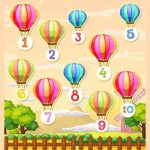“In order to help a kid who’s having a meltdown or tantrum, parents need to understand what’s causing it. This is hard because it could be fear, anger, frustration, or something else. If you give in to tantrums, kids will learn that having a tantrum will get them what they want. Your goal is to get your child to unlearn this.”
Caroline Miller, Steven Dickstein, Vasco Lopes
Let us understand why preschool behaviour management strategies are necessary to handle toddler temper tantrums? What’s worse than the occasional toddler temper tantrum?
The answer is simple. It’s a teacher losing their own mind, in an attempt to calm a child who finds themselves in the midst of a terrible meltdown.
Let’s face it. There’s no telling when a toddler might flare up next in the classroom. Getting to the root of the problem, will help teachers find that much needed calm in the midst of all that chaos.
You can rest assured that in this article you will find all the resources you need for the effective management of that temper tantrum in the preschool classroom. Let’s dive in, then, and get started with understanding how to tackle those toddler outbursts.
13 Effective Preschool Behaviour Management Strategies
Successful classroom management requires practising effective preschool behaviour management strategies to handle temper tantrums. Here are some effective classroom management techniques that will help preschool teachers approach tantrums in the preschool classroom at every stage, from prevention to aftermath.
- A Zero Tolerance Policy for Aggressive Behaviour
- Be the Calm to their Storm
- Let them be
- Remove them from the location
- Indulge in some good old Positive Reinforcement
- Tackling Special Issues
- Not ignoring the Elephant in the Classroom
- Talk about Emotions
- Paying close attention to them
- Keeping everyone safe
- Providing them with a calm space
- Encourage a sense of empathy
- Mastering the Art of Distraction
A child might slap another child when they are angry, or throw blocks in frustration at other children.
They have to understand that this kind of behaviour will not be tolerated. Make it clear that while it’s okay to feel angry, hurting other kids is not.
Preschool teachers want to be the perfect role model for their students.
Teachers need to be perfectly calm in their demeanour when children blow up. In all probability, that will help those angry kids calm down, too. Yelling back at them will only encourage them to scream again, knowing they get a response from their teacher when they do. This is certainly one of the more effective preschool behaviour management strategies.
Sometimes, it’s best if you simply leave the children to their own devices.
No, we’re not talking about gadgets here. Teachers should leave kids alone, when they find them blowing up all of a sudden. Sometimes, the best fix is merely letting them vent out in a non-destructive way. Note: Teachers must be around for support, without interfering. That will help children feel safe and secure, and regain self-control faster.
All you need at times, is to remove kids from the eye of the storm.
You might find their student unable to calm down after losing their temper in the classroom. What you could do is take them outside and have them wait in the play yard until they cool down. Tell them they are not going to be going back in unless their behaviour turns around.
A little praise can go a long way in helping prevent temper tantrums. Positive reinforcement is one of the comforting behaviour management techniques for preschoolers.
Encourage children in the classroom to be on their best behaviour. If you see that a particular child has not lost their temper of late, praise them for a job well done. Tip: You might want to give them a note that praises their exemplary behaviour, to show their parents at home.
Did you know that helping children face challenges is one of the important preschool behaviour management strategies?
Every child is different, and must be treated accordingly.
Perhaps a child in class has a problem doing one of the activities you have arranged for the kids. It might be the very thing that is frustrating them to the point where they lose their temper. It’s best to recognize the nuances of different children, so you can prevent them from finding themselves in uncomfortable situations, and thereby flaring up.
Some teachers feel that after the storm has calmed, it’s a bad idea to talk to kids about what just happened. According to behaviour management techniques for preschoolers it is important for the teachers to address what happened.
On the contrary, it’s vital to talk to children after their temper tantrums, to help them understand how they could have handled their emotions better. Talking about what just happened might not be your first instinct, but it’s the best way to help kids understand how to work through their feelings.
Teachers should talk about emotions with the little kids in their classrooms. One great way to do this is by role-playing. This is important, as it helps give children opportunities to think about how to handle their emotions in a positive way. Further, talking about emotions is one of the important strategies for temper tantrums of children.
There are signs that preschool teachers should look out for, that might help prevent those meltdowns. When they keep a close eye on the children in their class, they might notice them being bored or hungry. They can then focus on doing something to alleviate their boredom or hunger, thereby helping prevent that unwanted tantrum.
Did you know that paying close attention to children who throw temper tantrums will give them the space to express themselves calmly?
Yes, that’s right. Teachers should ensure that the child who is upset should be kept away from things like sharp corners and hard edges. Further, the other kids should be kept in a nearby space, and encouraged to do things like reading or drawing. Ensuring everyone’s safety is one of the crucial strategies to practise while dealing with temper tantrums of children.
It’s great if you could have a designated area in the classroom, where children can go if they are feeling upset. This not only gives them a sense of control but helps them disengage from whatever it is that caused the temper tantrum, to begin with.
A lot of children have problems sharing their things with even their closest friends. Having regular, honest conversations with them to help them understand how their friends feel, will go a long way in fostering a sense of empathy in them. An empathetic child will be able to stay respectful and caring to others, even in times of temper tantrums.
Sometimes all it takes is distracting children with a book or toy, to help prevent those tantrums. When you see a child on the verge of a tantrum, this is one of the best things you could possibly do. These are some of the effective ways in which school administration can take leadership in handling temper tantrums in children.
Conclusion
Parents and teachers both tend to lose their calm and their minds while dealing with preschoolers who throw temper tantrums. This article has details on 13 effective preschooler behaviour management strategies to resolve children’s temper tantrums. We hope to have answered your troubling question,’ How to handle toddler temper tantrums?’
At EuroKids we know well that managing temper tantrums can be especially tricky in the classroom. While tantrums are inevitable, our teachers are well prepared to manage them effectively and ensure there is that highly sought-after sense of ‘order’ in the classroom.
For informative and accurate articles on all things related to your new born-toddler’s development, growth, health and nutrition, follow EuroKids Blogs and do check out our nationally recognized preschools – EuroKids for the first step in your kid’s educational journey!















